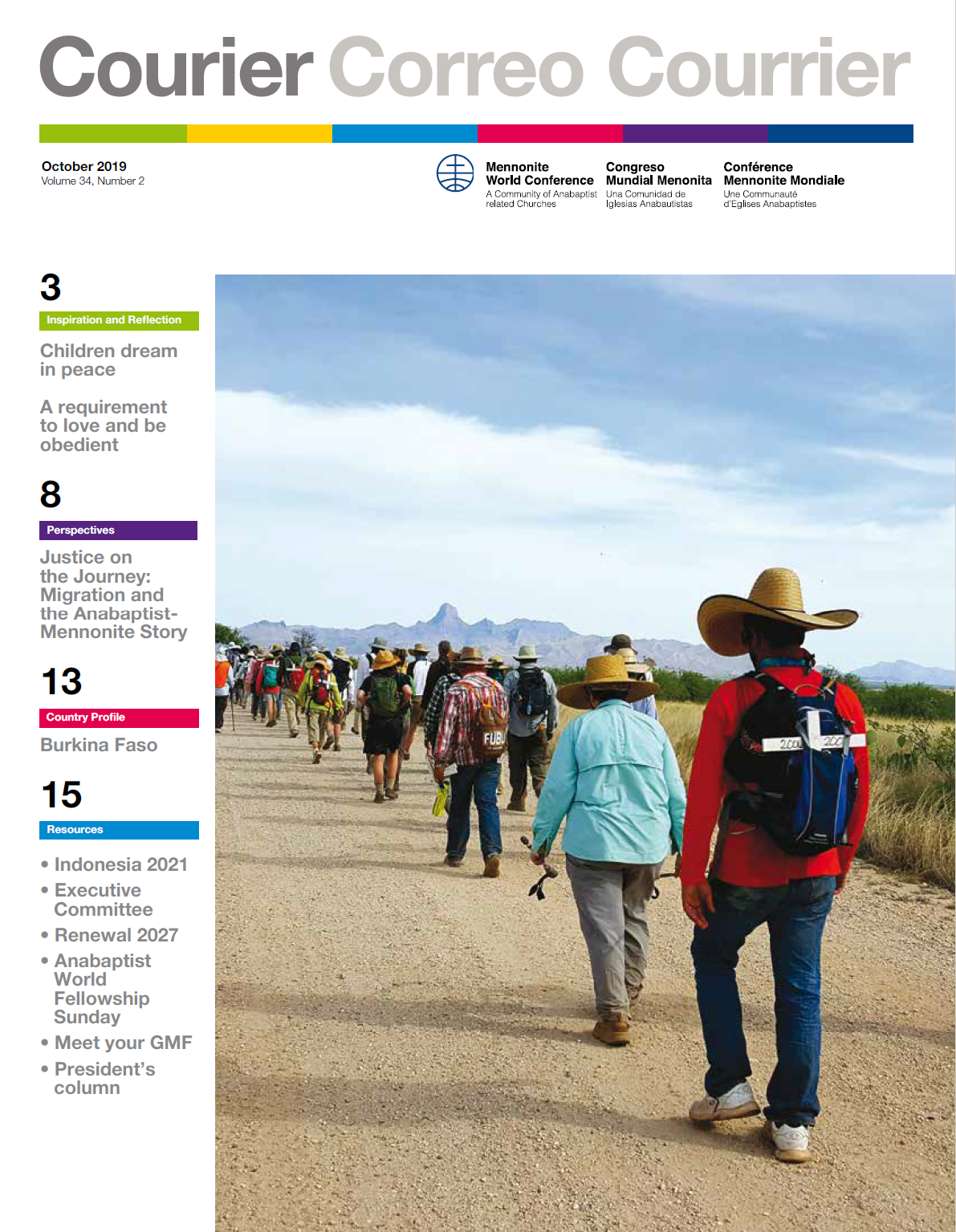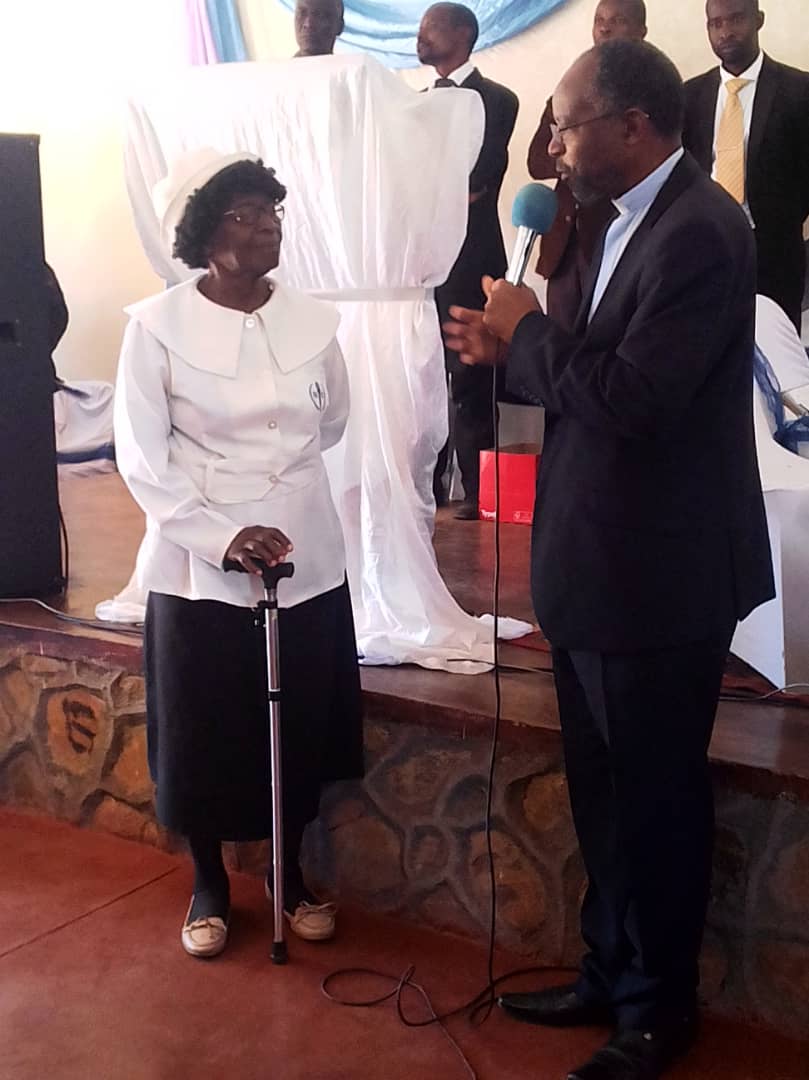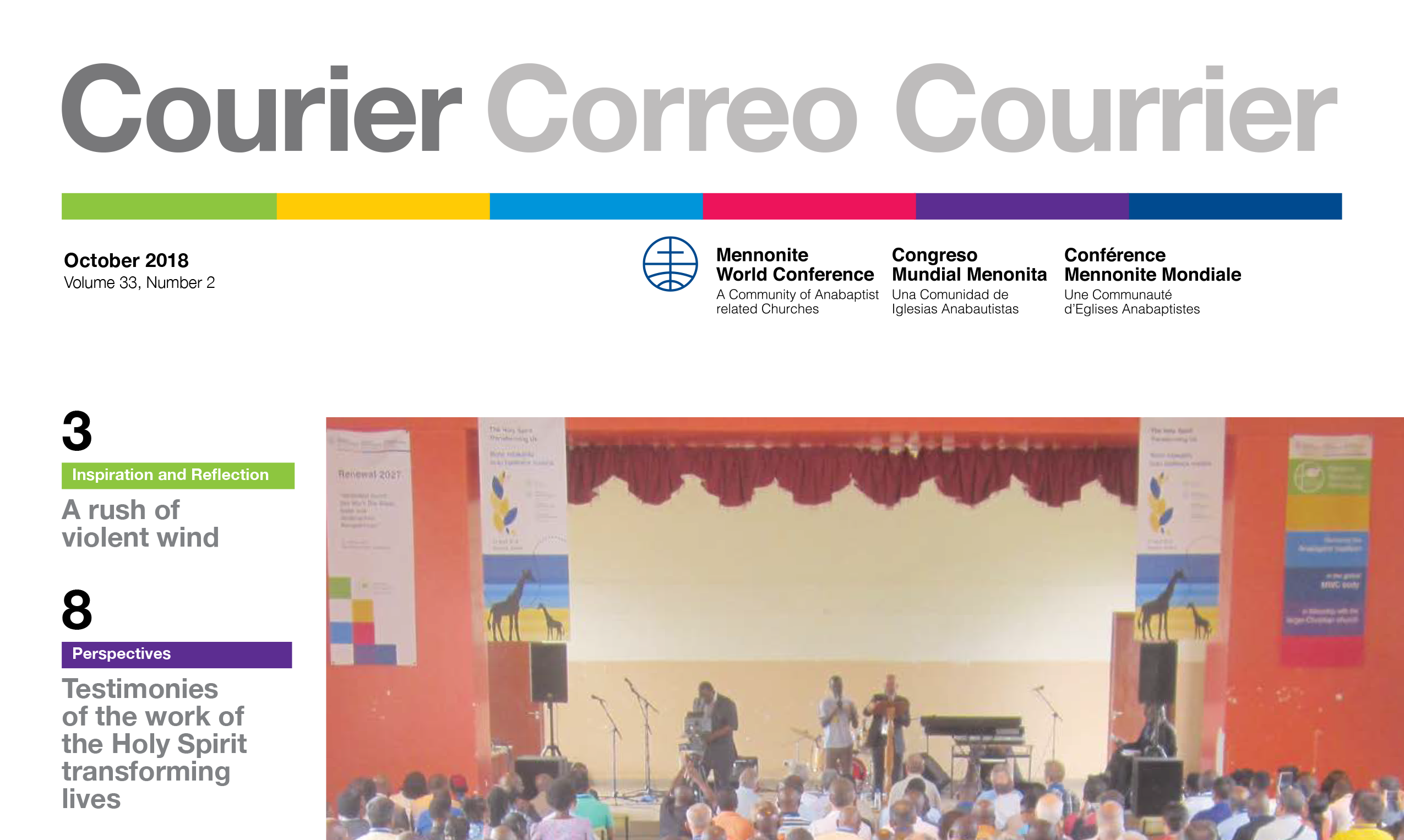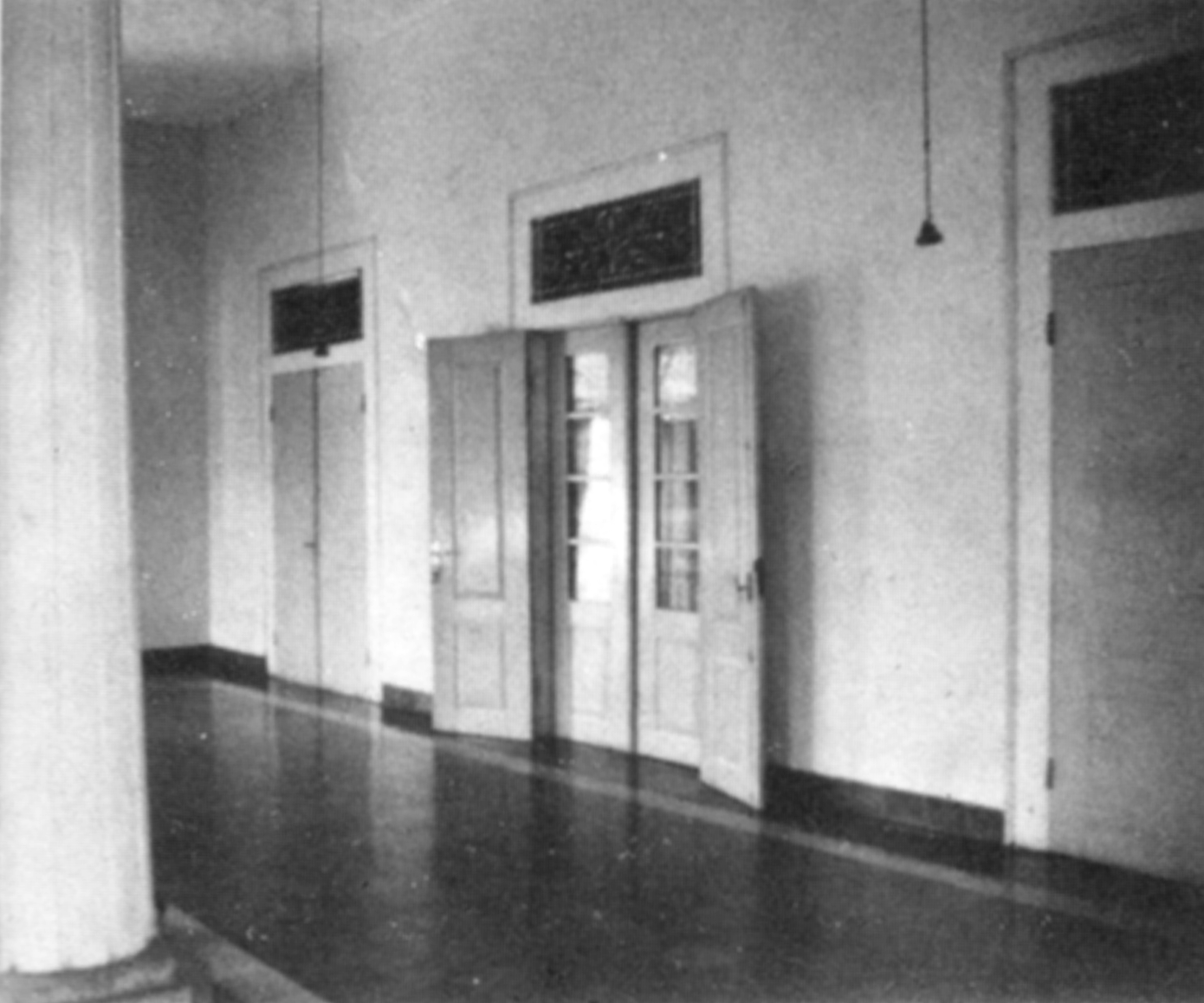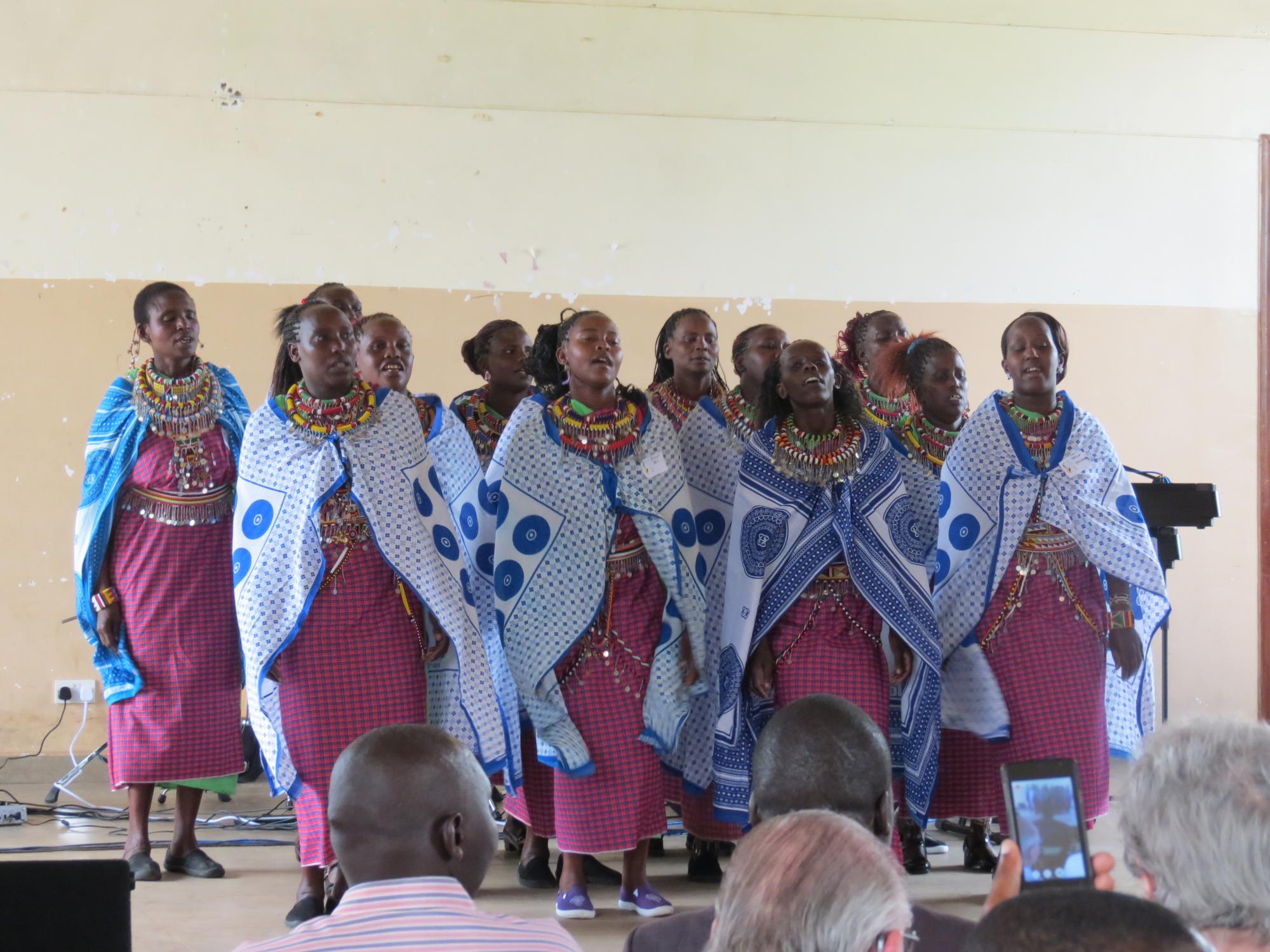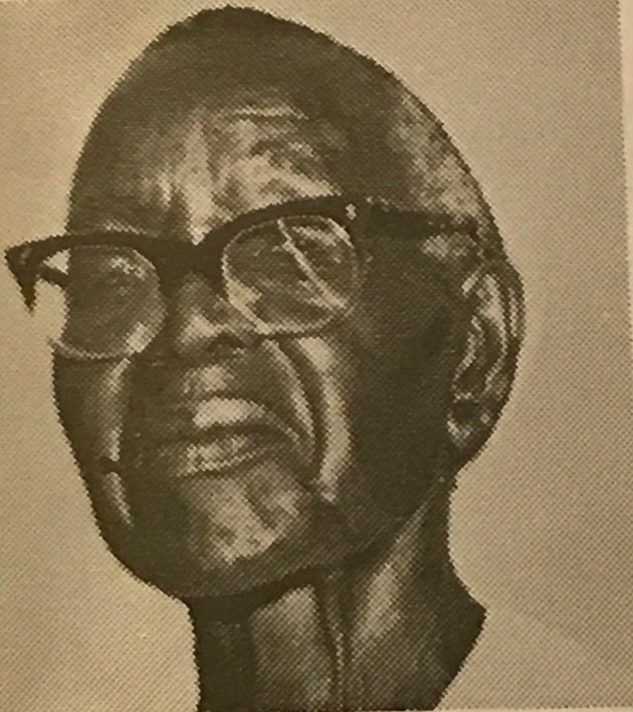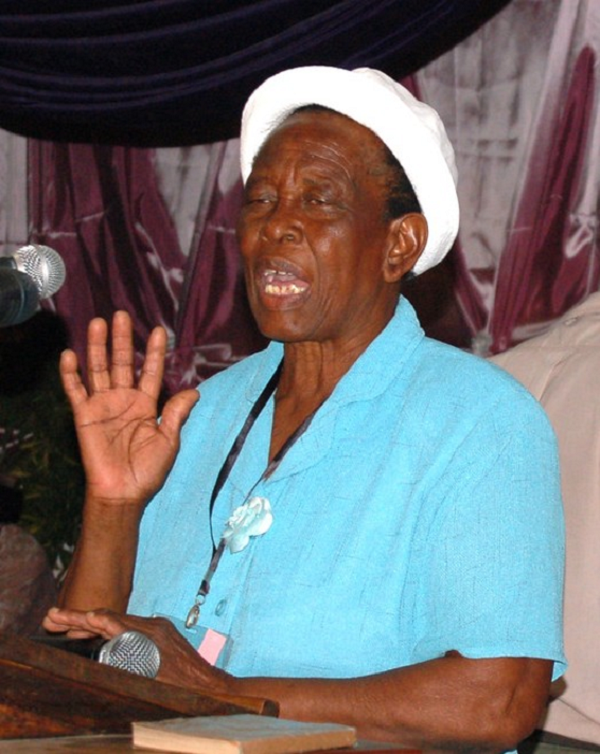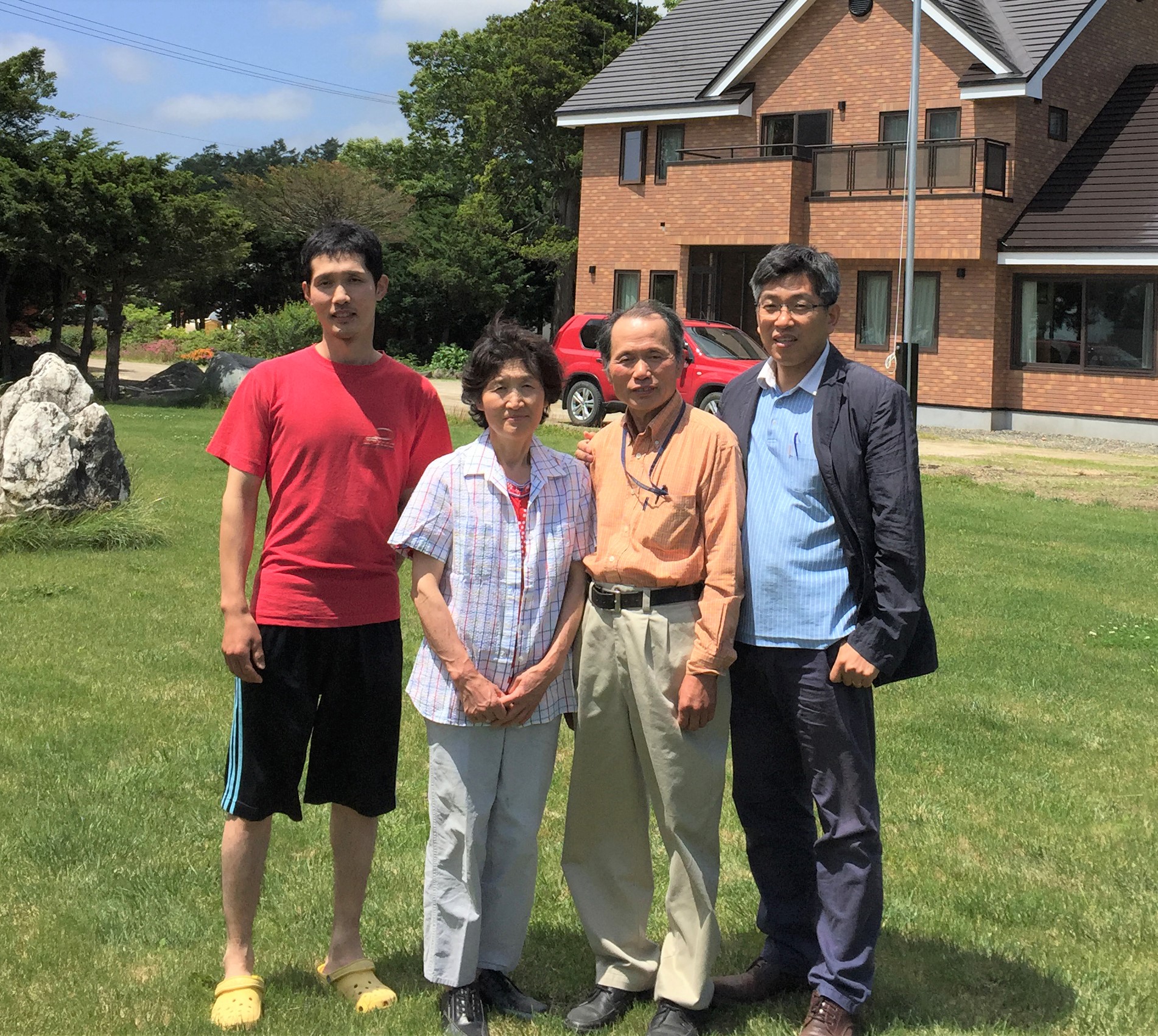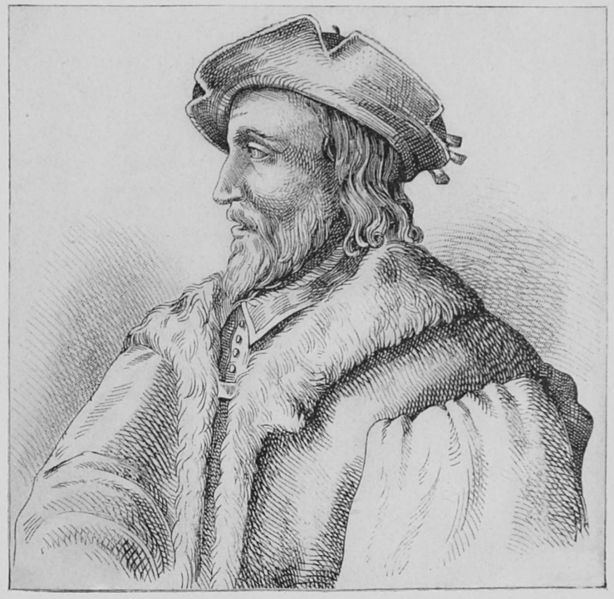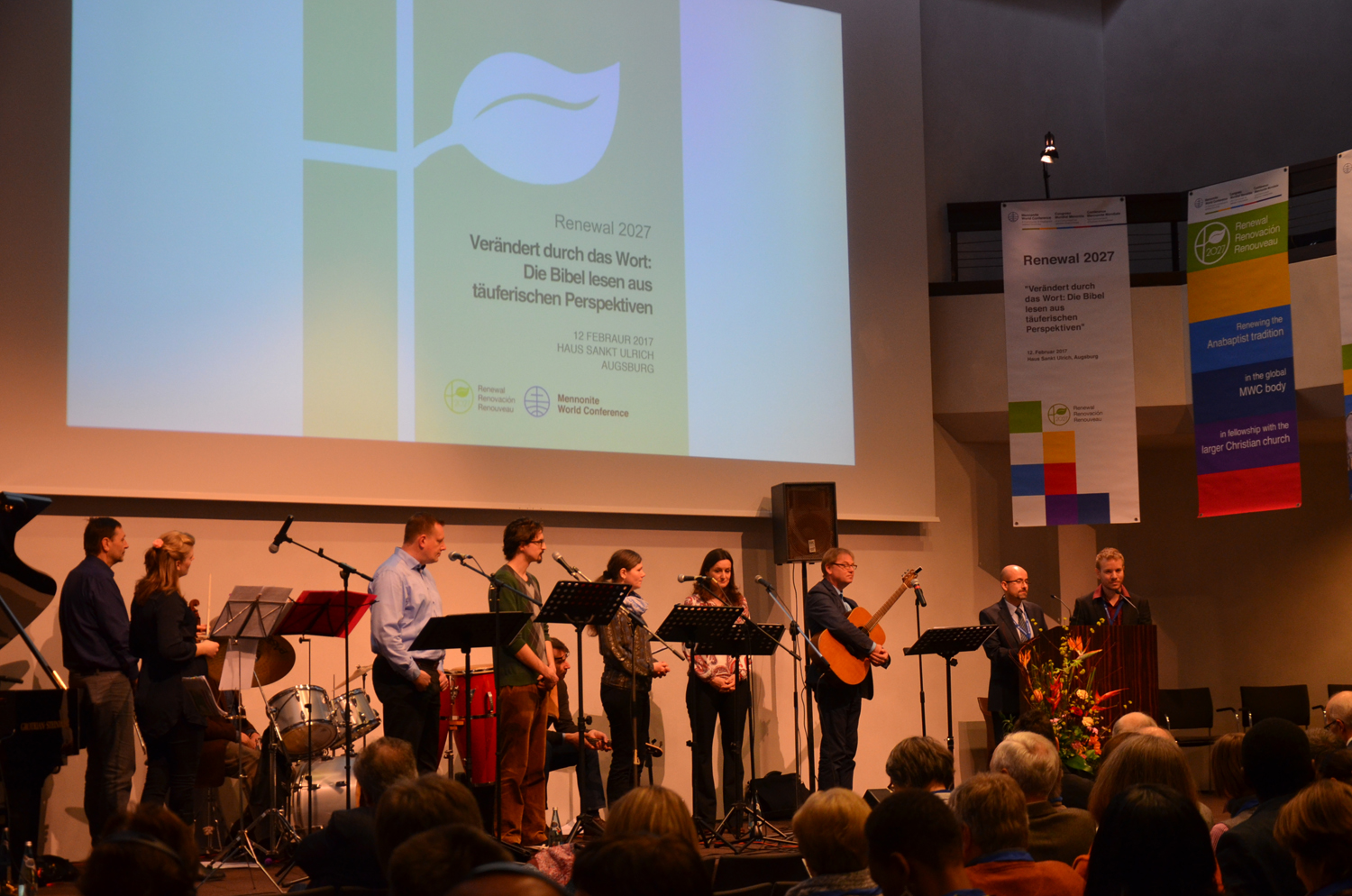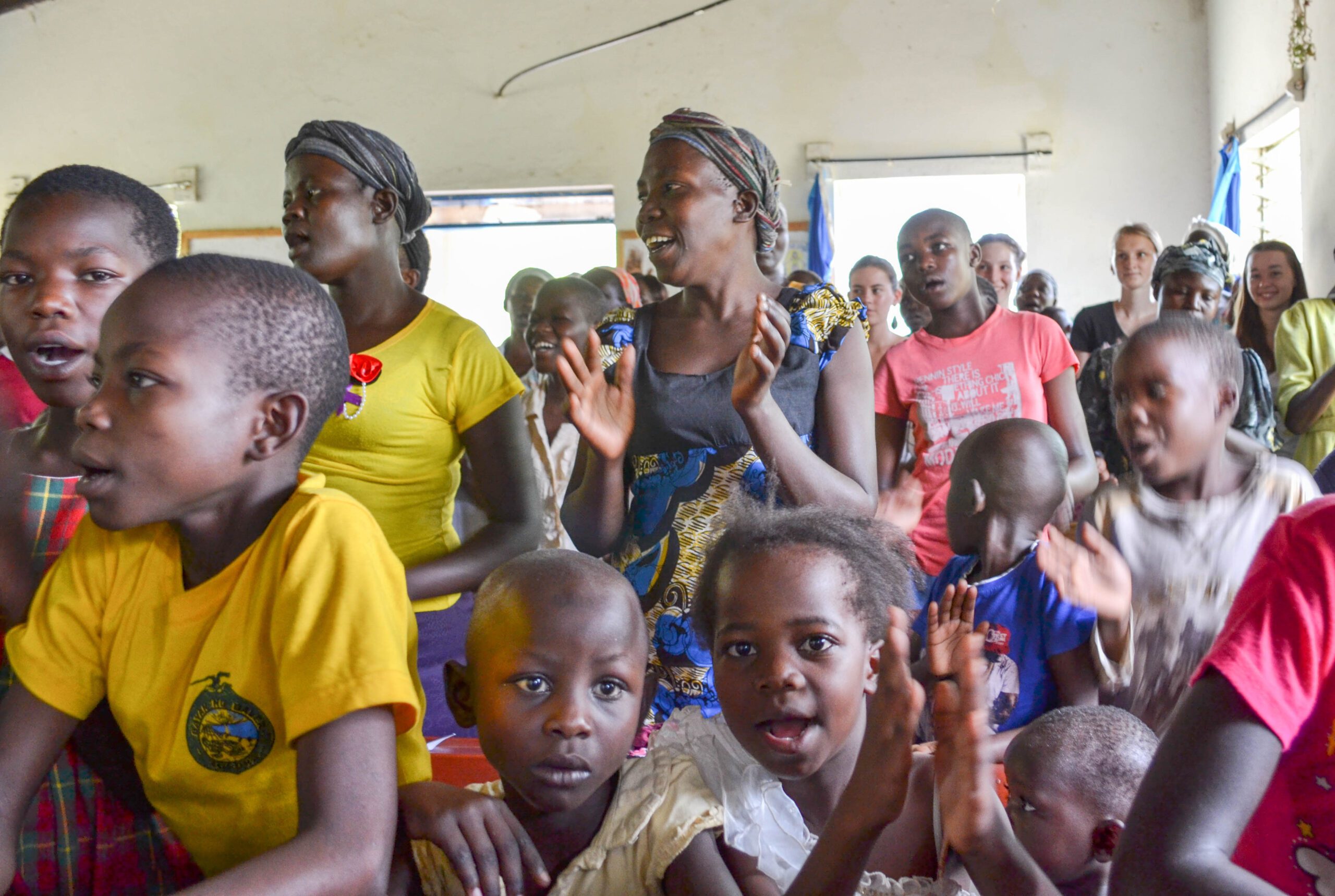-
Courier 2019 / 34.2
Click the image below to view the magazine as PDF. Stories in this issue Children dream in peace ‘One another’s keepers’ A requirement to love and be obedient Opening our arms and hearts to migrants Responding to displaced people Grey does not have to stay grey Foreigners on a pilgrimage Our God is a restorer
-
“God greatly sustained me”
In the structure of the Brethren in Christ Church of Zimbabwe, most leadership positions are filled by men. However, there are many women who have great leadership skills and have been pastors and effective leaders in the church.
-
“Djagalah Anak Kambing Koe” (“Tend My Lambs”)
On his deathbed, Tee Siem Tat called his sons, Tee Yan Poen and Tee Yan Siang, and his son-in-law, Tan King Ien. To them, Tee Siem Tat spoke his last words: “Djagalah anak kambing koe” (“Tend my lambs,” John 21:15 in Old Bahasa). His grandson, Rev. Herman Tan, believes his last words were to ask…
-
Joy in the Spirit
Songs, testimonies and biblical reflection celebrate the Holy Spirit at Renewal 2027 As a local band played “You are the most high God,” international guests from the global Anabaptist family swayed and sang at this year’s Renewal 2027 “The Holy Spirit transforming us” event at Nyamasaria Primary School’s auditorium in Kisumu, Kenya, and headquarters of
-
Sitshokuphi Sibanda: a pioneering church planter
One of the earliest Brethren in Christ (BIC) women in Zimbabwe who was involved in church planting work and in preaching the gospel in the early years was Sitshokuphi Sibanda.
-
Stop and listen
Nellie is a woman who has achieved many firsts against many odds in the Brethren In Christ Church (BICC) in Zimbabwe. She has been a valued lay preacher right through life, particularly in large gatherings such as conferences.
-
Eun Hunki: Choosing to follow the way of Jesus
His life was not easy, but he never failed to carry the spirit of Jesus that the Mennonites taught him through his vocational school years in 1950–60s. After graduation, he studied dairy farming and finally moved to Hokkaido, Japan, to live with his family.
-
Elsbeth and Balthasar Hubmaier
What was it like for a Christian who defends the state’s use of force to have the force used against him? Or for a wife, after her husband’s imprisonment and torture, to watch as he is burned at the stake? Or, three days later, for her to be tied to a large stone and dropped…
-
The Bible still speaks, say Renewal 2027 speakers
Augsburg, Germany – Regional Anabaptists and leaders from around the world gathered 12 February 2017 for “Transformed by the Word: Reading Scripture in Anabaptist Perspectives,” the first in a 10-year series of events called “Renewal 2027” organized by Mennonite World Conference (MWC) to commemorate the 500th anniversary of the Anabaptist-Mennonite tradition with appreciation and critical
-
The next 500 years of Anabaptism
Bogotá, Colombia – Tremendous change rocked the Western church 500 years ago as successive groups discovered new things about God through Scripture and separated from the Roman Catholic church. Renewal 2027 is a framework for a 10-year series of events within the Mennonite World Conference (MWC) global family, commemorating Anabaptism’s role in that period of
-
Renewal decade commemorates 500th anniversary
Bogotá, Colombia – On 12–19 February 2017, Anabaptist-Mennonites from around the world will gather in Augsburg, Germany, to celebrate the opening event of Renewal 2027 in conjunction with meetings of the Mennonite World Conference Executive Committee. Renewal 2027 will be a 10-year series of events (culminating in 2027) to commemorate the 500th anniversary of the
